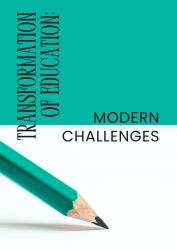Assessing stakeholder perspectives on essential skills in nanoscience: What matters most?
Keywords:
Environmental competence, social maturity, high school students, self-development, consequences of the war, culture of society, educational projects, phraseology, skills, philology students, critical thinking, multiculturalism, professional training, intercultural competence, interdisciplinarity, Russia-Ukraine war, cultural context, socio-emotional and ethical training, national valuesAbstract
This article presents the results of a study analyzing the relative importance of cognitive, practical-operational, and motivational-value skills for professionals in the field of nanoscience. The study identifies the critical skills necessary for success in this interdisciplinary field based on a survey of various stakeholder groups, such as academic researchers, industry professionals, graduate students, policymakers, and ethicists. The findings show that all respondents consider critical thinking and problem-solving essential. Ethical responsibility and awareness of societal impact also play a significant role, especially among policymakers and ethicists. The identified differences in priorities between stakeholder groups highlight the need for improvements in nanoscience education to ensure the development of professionals equipped to address scientific-technical and ethical challenges. The article discusses potential directions for enhancing educational programs and policies.

TRANSFORMATION OF EDUCATION: MODERN CHALLENGES
Downloads
Pages
Published
Categories
License

This work is licensed under a Creative Commons Attribution-NonCommercial-NoDerivatives 4.0 International License.

